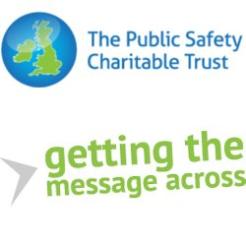The Public Safety Charitable Trust plans to challenge this week’s High Court ruling that it cannot claim rate relief for the 1,500 empty commercial buildings it leases around the country.
The charity's chief executive Mark Ferguson told civilsociety.co.uk today: “I’m not going to roll over. I’ve had the best legal advice possible for the last three years from solicitors, barristers and QCs and all of them have assured me that what we are doing is completely legitimate.”
Meanwhile, charity lawyer Moira Protani has accused the judge in the case of setting a “dangerous precedent” by allowing local authorities to overrule decisions of charity trustee boards.
On Tuesday this week, Mr Justice Sales in the High Court upheld an appeal by three local councils against claims for business rate relief by the Public Safety Charitable Trust (PSCT). The PSCT had been leasing more than 1,500 empty commercial buildings across the country, paying a peppercorn rent and thus allowing its landlords to avoid paying empty business rates on the properties because they were being used for charitable purposes. Some landlords also pay a "reverse premium" to the charity for helping to reduce their rates bill.
The PSCT installed wireless internet transmitters in the buildings, to provide free wi-fi and allow crime reduction charities such as Crimestoppers to broadcast crime prevention messages via Bluetooth. It argued in court that these activities were charitable and so it was entitled to the rate relief.
But in a similar conclusion to that in the recent case of the Kenya Aid Programme, Mr Justice Sales agreed with the councils that the charitable use of the buildings was not extensive enough to justify the relief. He ruled: “Exemption from rates for a charity in occupation of a building should depend upon the charity actually making extensive use of the premises…rather than leaving them mainly unused.”
One of the councils, South Cambridgeshire District Council, described the arrangements between the charities and the landlords as a tax-avoidance scheme. The councils will now seek to recover the tax from PSCT.
But Moira Protani, head of charities at Wilsons, pointed out that the Charity Tribunal made clear in its decision concerning independent schools that it is not for the Charity Commission or the courts to interfere in the discretion of trustees on how their charity should best provide public benefit.
Mr Justice Sales’ decision ignores the Tribunal’s decision, she said, and sets a “dangerous precedent”.
“It allows local authorities to determine whether or not the trustees of a charity are providing sufficient public benefit to justify relief from rates and in effect to measure the quality of the use of a building by a charity.
“For this reason we think the decision should be appealed by the charity.”
Mark Ferguson said he deals with 240 councils around the country and the vast majority of them grant the PSCT the 80 per cent rate relief without question. But “eight or nine have taken a personal dislike to me, and I take it personally”, he added.
He said the services provided by the charity are genuinely charitable, as evidenced by the fact that more than 2.3 million people have accepted the Crimestoppers text messages sent from the buildings over the last three years. For that reason, PSCT will not be accepting the latest judgment, and Ferguson said he would be taking advice on how to challenge it.
One of the cases must now go back before Chester Magistrates’ Court, where the council originally lost its case last summer, for it to reconsider its earlier judgment before it can be enforced.
Protani also warned that if the decision is allowed to stand, charities should be wary of accepting gifts of property from donors unless they are in a position to fully occupy them immediately, as otherwise they may be liable to pay rates.









